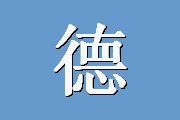Successful careers are not planned. They develop when people are prepared for opportunities because they know their strengths, their method of work, and their values. Knowing where one belongs can transform an ordinary person- hardworking and competent but otherwise mediocre-into an outstanding performer.——Peter • Drucker
对于知识工作者来说,他们还不得不提出一个以前从来没有提出过的问题:我的贡献应该是什么?要回答这个问题,他们必须考虑三个不同的因素:当前形势的要求是什么?鉴于我的长处、我的工作方式以及我的价值观,我怎样才能对需要完成的任务做出最大贡献?最后,必须取得什么结果才能产生重要影响?——彼得•德鲁克
Knowledge workers in particular have to learn to ask a question that has not been asked before: What should my contribution be? To answer it, they must address three distinct elements: What does the situation require? Given my strengths, my way of performing, and my values, how can I make the greatest contribution to what needs to be done? And finally, What results have to be achieved to make a difference?——Peter • Drucker
把眼光放得太远既不大可能的,也不是特别有效。一般来说,一项计划的时间跨度如果超过了18个月,就很难做到明确和具体。因此,在多数情况下我们应该提出的问题是:我在哪些方面能取得将在今后一年半内见效的结果?——彼得•德鲁克
It is rarely possible -or even particularly fruitful - to look too far ahead. A plan can usually cover no more than 18 months and still be reasonably clear and specific. So the question in most cases should be, Where and how can I achieve results that will make a difference within the next year and a half?
——Peter • Drucker
 人才测评 管理知识 德鲁克日志
人才测评 管理知识 德鲁克日志 